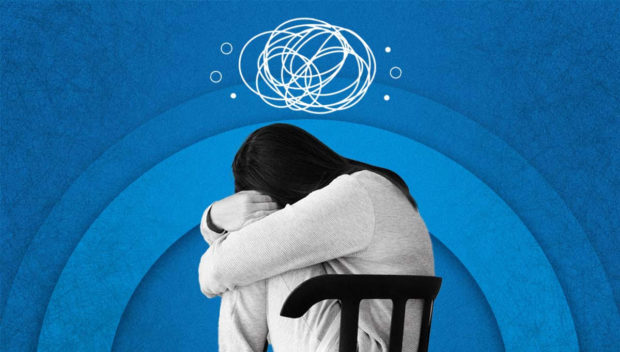MANILA, Philippines — A total of 404 young students in various parts of the country took their own lives and 2,147 others attempted suicide during Academic Year 2021-2022 when most schools were still shuttered because of the pandemic.
Assistant Education Secretary Dexter Galban shared the figures, which were gathered by the Department of Education (DepEd), during a hearing of the Senate basic education committee.
The staggering figures gave lawmakers a snapshot of the mental health crisis afflicting the sector, which is beset with many other problems, from lack of resources and poor academic scores to high learning poverty rates and overworked, underpaid teachers.
“This is really heartbreaking and alarming,” Sen. Sherwin Gatchalian told reporters after presiding over the five-hour inquiry.
“One life [lost] is one too many. This should not be happening in our schools. It’s even more alarming since based on the information from the experts, this number continues to grow and is made worse by the pandemic,” he said.
Galban told senators that the worst might not be over, considering public and private schools shifted to 100-percent in-person classes only in November after two years of remote learning.
‘Alarming rate’
“This is an alarming rate that continues to go up given that the transition from online to face-to-face classes can also put a strain on our learners, in the same light that the transition from face-to-face to online [classes] provided a strain on [them],” he said.
Of the country’s 28 million young learners in public schools, he said, a total of 775,962 sought the assistance of guidance counselors during the period.
About 8,000 of those cases involved bullying, he said.
“We believe that this is potentially underreported given the lack of guidance counselors in schools,” Galban said.
DepEd did not provide comparative figures from previous school years but Gatchalian cited a 2021 study by the University of the Philippines Population Institute which showed that 20 percent of young Filipinos had considered suicide.
That means as many as 5 million young Filipinos may have thought of ending their lives, the senator said.
“That’s a lot of students we need to counsel and to reach out to,” said Gatchalian
The Global School-based Student Health Survey (GSHS), a collaborative surveillance project supported by the World Health Organization, also showed an uptrend in suicidal thoughts among 13- to 17-year-old students in the Philippines.
In the 2015 study, 11.6 percent of the respondents said they seriously considered attempting suicide during the 12 months before the survey, while 16.2 percent attempted suicide one or more times in that period.
In the 2019 survey, the teenage respondents who reported they seriously considered suicide rose to 23.1 percent and those who tried to take their own lives at least once rose to 24.3 percent.
No close friends
The percentage of students who reported they did not have any close friends also grew from 4.3 percent in the 2015 GSHS to 5.9 percent in the 2019 study.
In response to the apparent mental health crisis among students, DepEd is eyeing higher salaries for guidance counselors.
In her Basic Education Report 2023 delivered on Monday, Vice President and Education Secretary Sara Duterte acknowledged that many young learners “experience emotional abuse and exhaustion,” with some suffering from psychological fatigue.
“These are caused and triggered by conditions present at home, in our communities, and even in our schools as a result of problems ingrained in our system,” she said.
To address the problem, DepEd vowed to tap mental health experts to establish relevant guidance and psycho-social interventions at the school level and work to raise the salary grades of guidance counselors.
A Guidance Counselor I currently receives the same monthly pay of P27,000 as entry-level teachers under Salary Grade (SG) 11. A Guidance Counselor II receives P29,165 under SG 12 while a Guidance Counselor III receives P31,320 under SG 13.
As of 2021, DepEd has only 2,093 guidance counselors, or a ratio of one mental health professional for nearly 13,400 learners, and 16,557 “guidance officers,” Galban told the Senate committee.
This is a far cry from the ideal ratio of one guidance counselor for every 500 students, he said.
The Philippine Guidance and Counseling Association and the Alliance of Concerned Teachers each expressed their support for Duterte’s proposal, saying this was a step in the right direction.
Rise of school violence
Another major challenge in the basic education sector is the apparent rise of school violence.
In January, a Grade 7 student from Culiat High School in Quezon City fatally stabbed his classmate in the school building. A University of the East senior high student took his own life and a 12-year-old student in San Jose Del Monte City in Bulacan accidentally shot himself with his father’s gun.
A series of bomb scares had also caused alarm in some elementary and high schools over the past two weeks.
On Tuesday, the Commission on Human Rights objected to a proposal to allow police presence in schools to deter violence.
Instead, the rights body urged the Philippine National Police to work with DepEd in protecting children’s welfare and reminded the PNP of a 2019 DepEd order stating that schools must be free from police and military presence so learners could “feel safe, secure and nurtured.”
—WITH REPORTS FROM JANE BAUTISTA AND KRIXIA SUBINGSUBING
If you or someone you know needs help, the National Center for Mental Health (NCMH) crisis hotlines can be reached at 1553 (Luzon-wide landline toll free), 0917-899-USAP (8727), 0966-351-4518, and 0908-639-2672. (https://doh.gov.ph/NCMH-Crisis-Hotline)
You may also call Hopeline PH: 0917-5584673, 0918-8734673, 88044673 or visit ngf-mindstrong.org and its Facebook account: Hopeline PH.
